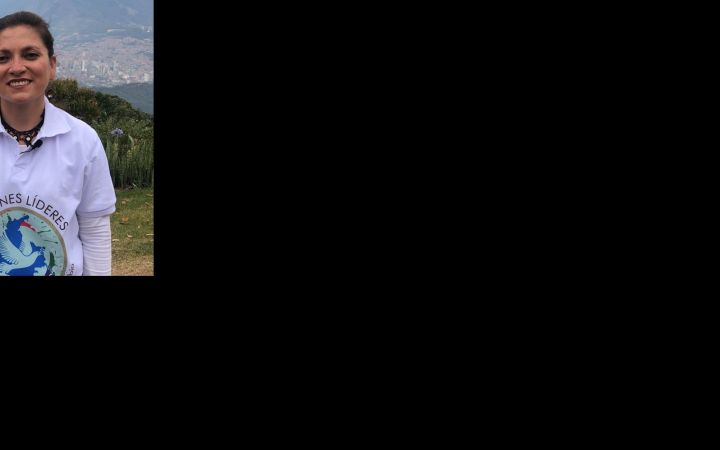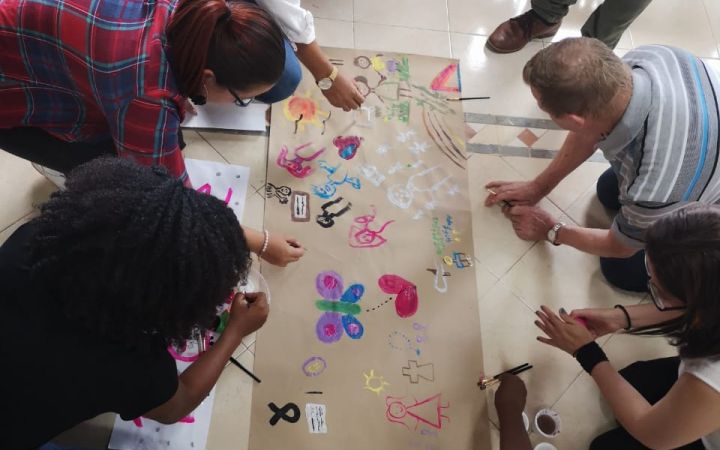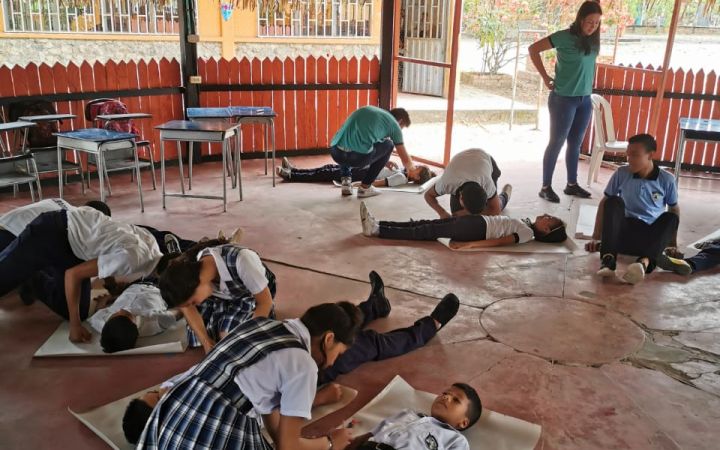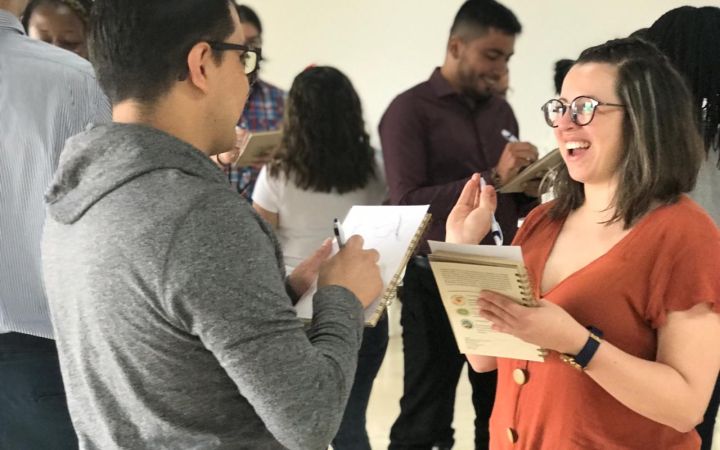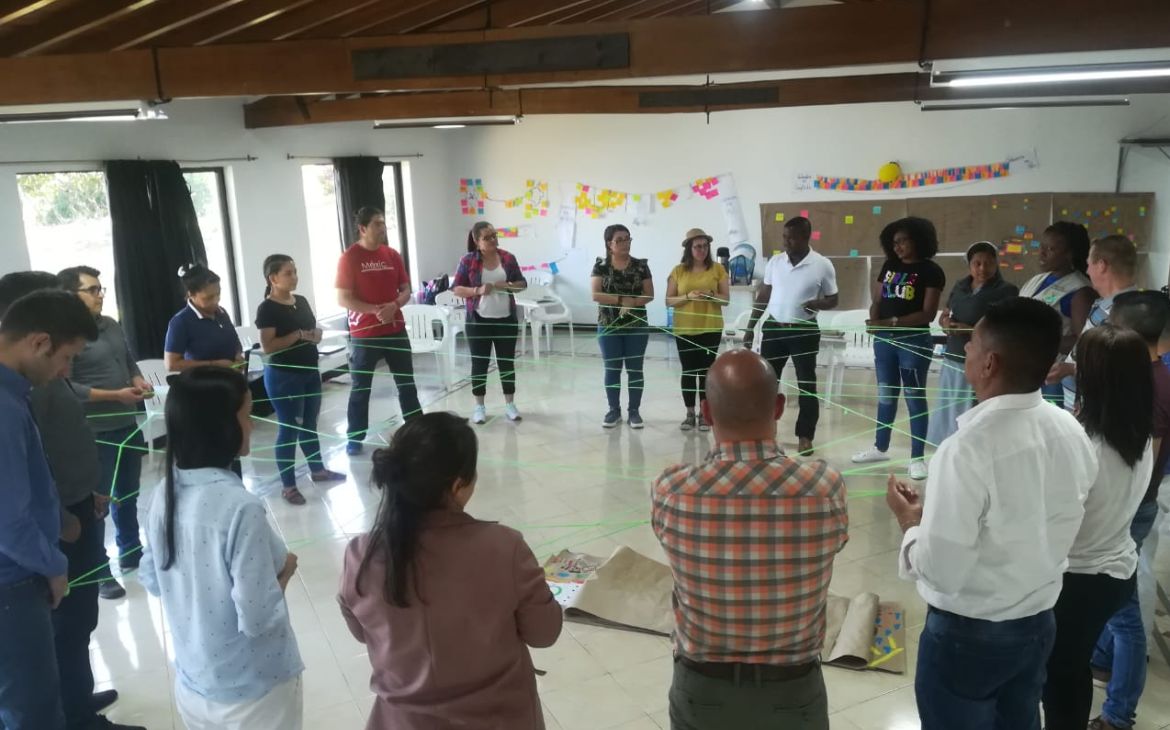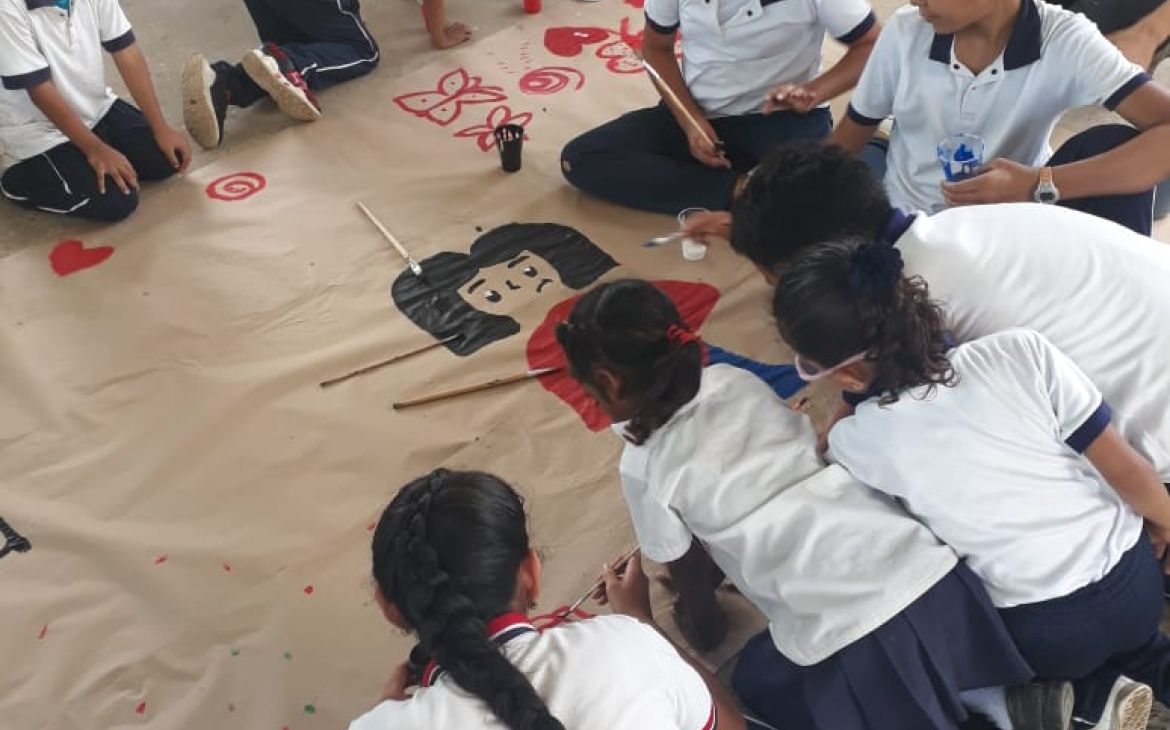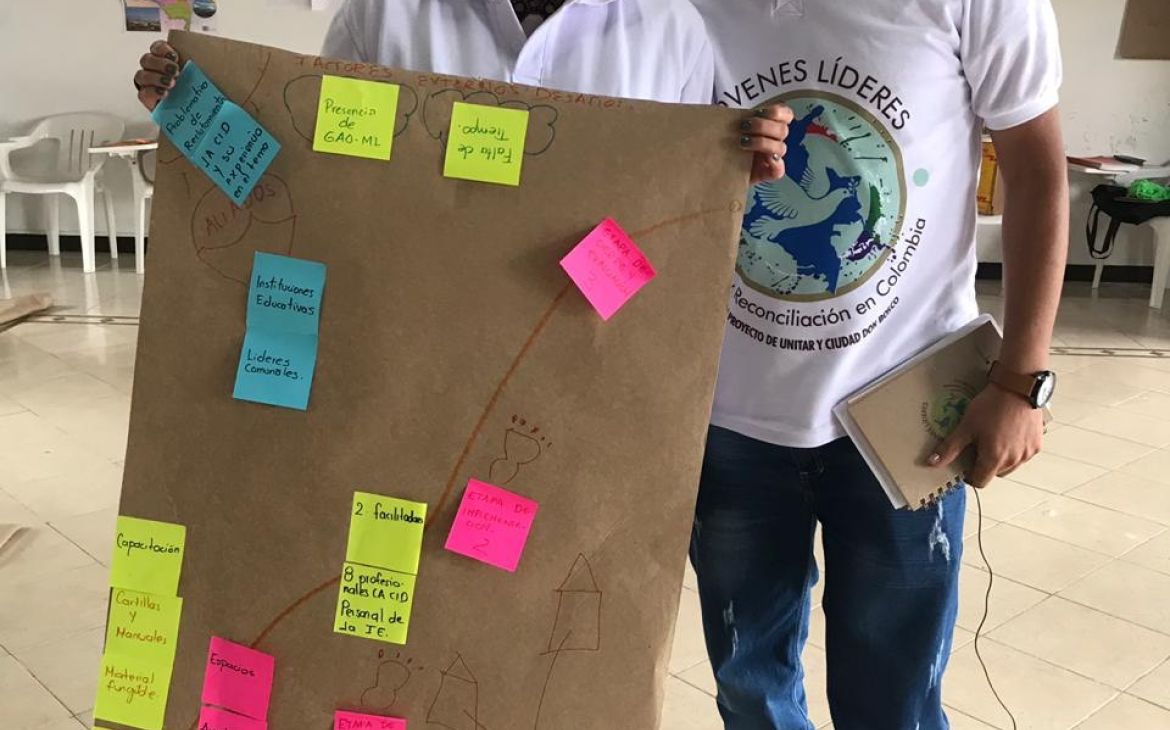“Different armed groups remain in control of large areas of the territory, particularly illegal border posts, affecting not only Colombians but also Venezuelans who cross the border every day escaping from hunger and political violence. In 2018, 160 cases of recruitment of children by armed groups were reported in Arauca.”
Explains Luis Bolivar, who together with his colleague Keydi Perez work for Corporación Infancia y Desarrollo in Arauca – one of the provinces most affected by the armed conflict in Colombia. In addition, they emphasise that the province is facing a dangerous rise in violence against women, family abandonment, forced displacement and suicidal behaviour among youth, who experience regular confrontations between national forces and illegal and armed groups.
Both Luis and Keydi have recently participated in the training sessions held in Medellin as part of UNITAR’s project “Youth-led Peace and Reconciliation in Colombia: A Transformational Approach”. The project, funded by the German Federal Foreign Office, has been designed to support the ongoing peacebuilding and reconciliation process in Colombia. One of the focus areas of this project is to support young people in at risk areas, their families and their communities to prevent the recruitment and re-recruitment of children and youth into armed groups and criminal gangs as well as supporting the reintegration of former child-soldiers.
Around the globe, there is currently a growing acknowledgement that young people can make meaningful contributions towards preventing violence and sustaining peace. However, especially in the context of conflict-affected societies, young people are still most commonly portrayed as either victims or perpetrators of conflict. The United Nations has taken several ground-breaking steps towards the recognition of the positive role that young people play for international peace and security (Security Council resolutions 2250 and 2419), as well as for achieving the sustainable development goals. In 2018 the Secretary-General released Youth 2030 – the UN Strategy on Youth, with the objective of scaling up global, regional and national actions to meet young people’s needs, realise their rights and tap their potential as agents of change.
Considering young people as actors of change and as peacebuilders is the fundamental idea behind this UNITAR’s project, which consists of several consecutive components. In this project component, a five-day master training was implemented between 2-6 September 2019 in Medellin – Colombia in collaboration with Ciudad Don Bosco, UNITAR´s local partner since 2014. Twenty-one professionals (teachers, educators, psychologists, social workers) from different departments of the country attended the training, which was based on the UNITAR educational methodology called Pintando el Futuro (Painting the Future).
The main tool used in this training is a collection of four comic books created with the involvement of a group of former child-soldiers undergoing their process of reintegration. Having experienced the conflict in Colombia in the ranks of illegal armed groups, between 2014 and 2016 they participated in a series of workshops conducted by UNITAR, during which they shared their lived experiences through images and storytelling. Based on these stories, the comic books were developed to later inspire an original training methodology. The use of this methodology helps to motivate children and youth to discover their inner strengths, develop resilience and emotional intelligence, identify and prevent risks and build solid relationships with other community members.
Keydi Perez works closely with children and young people in Arauca, who are victims of forced recruitment or face a high risk of being recruited by armed and illegal groups. To prevent this from happening, to support reintegration processes and overall to help build sustainable peace in Colombia, she and the Corporación Infancia y Desarrollo conduct capacity-building trainings for young people trapped in the midst of the conflict with the aim of supporting them to become strong youth leaders. She describes the importance of these capacity-building spaces, where youth can identify risks they face within their social context inside and outside of the school:
“This awareness helps them to develop resilience capabilities and empowers them to master their lifepaths. It also helps them to acknowledge that they are agents of change and that peace starts with the recognition of themselves, their fears, their concerns and every situation that can turn them into vulnerable targets for armed groups.”
Having completed the master training, Keydi, along with other participants, will conduct a training of trainers for her colleagues, based on the same methodology, spreading the tools to different parts of Colombia. Keydi explains that UNITAR’s comic books are a unique and transformative methodology, key for enhancing the efforts of prevention and reintegration since, in her own words:
“It is extraordinary to imagine how children and young people can relate with the characters and stories in these comic books. The use of this tool will facilitate so much youth´s comprehension of the context they live in and the risks surrounding them. These comics are also a remarkable therapeutic and reflexive exercise for victims of forced recruitment since they allow them to see that emotional recovery is possible. Receiving training, occupying their free time and especially receiving emotional support will allow them to develop a transformative view of their lives and overcome their fears.”
Finally, Keydi highlighted that one of the elements of the master training that she valued most was having the opportunity of personally living and experiencing the methodologies since, in fact, UNITAR’s trainings are participatory and have a strong experiential element:
“I have worked [for] several years in the area of prevention of forced recruitment and this is the first time that I am able to live and experience the methodologies and undergo personal work. This for me is significant for the upcoming process of multiplying the acquired knowledge.”
By 2020, all trained professionals will be implementing these methodologies in the communities they work in, targeting not only children and youth but also sensitizing other members of their families. Stay tuned and follow our newsletters and social media for more updates on the youth-led peacebuilding in Colombia. The journey is just starting!


